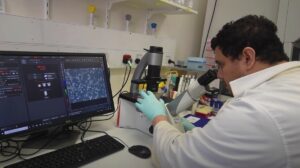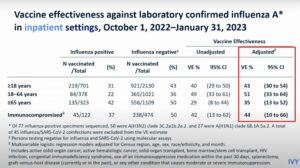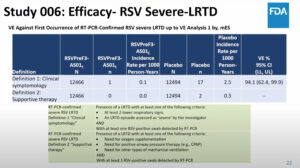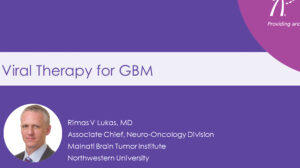NEW YORK (Reuters Health) – Results of an integrated analysis of pooled data from two clinical trials confirm that the recombinant peptide ecallantide (Kalbitor; Dyax Corp) reduces symptoms significantly during acute hereditary angioedema attacks.
As outlined in the Journal of Allergy and Clinical Immunology online April 11, the genetic anomaly in hereditary angioedema leads to excessive production of bradykinin, and hence to increased vascular permeability and edema. Ecallantide is a potent inhibitor of bradykinin synthesis, and has been approved by the US Food and Drug Administration for treatment of acute hereditary angioedema attacks.
During its development, ecallantide was evaluated in two randomized, double-blind, placebo-controlled phase III trials, the authors explain. The current study combines the data from those trials to assess treatment effects of ecallantide in a larger patient group.
A total of 143 patients received either 30 mg of subcutaneous ecallantide or placebo within 8 hours of onset of a moderate-to-severe attack of angioedema. “Efficacy was evaluated by using validated patient-reported outcome measures: the Mean Symptom Complex Severity (MSCS) score and the Treatment Outcome Score (TOS),” explain Dr. Albert L. Sheffer, with Brigham and Women’s Hospital and Harvard Medical School, Boston, and colleagues.
They found that 4 hours after treatment, MSCS scores were reduced significantly more with ecallantide (-0.97) than with placebo (-0.47; p<0.001). “The minimally important difference for change in MSCS score from baseline was estimated to be -0.30,” the investigators note.
Similarly, the TOS was increased more with ecallantide than placebo, 55.5 vs. 20.0 (p<0.001), and the difference in symptom improvement continued over 24 hours, according to the report.
Furthermore, there was no indication of anaphylaxis or drug hypersensitivity reactions. The rate of seroconversion to anti-ecallantide antibodies and to neutralizing antibodies was 1.6%, which had no apparent effect on ecallantide efficacy.
Summing up, Dr. Sheffer and colleagues conclude, “Ecallantide represents an important therapeutic option for a previously unmet medical need.”
Reference:
Ecallantide (DX-88) for acute hereditary angioedema attacks: Integrated analysis of 2 double-blind, phase 3 studies
J Allergy Clin Immunol 2011.




